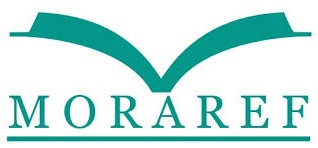e-Voting: Aplikasi E-Voting Fko (Forum Komunikasi Osis) Berbasis Web Responsive Terintergrasi Dengan Sistem Import Export Excel di Pondok Pesantren Nurul Jadid
(1) * Moh. Ainol Yaqin
 (Universitas Nurul Jadid, Probolinggo)
(Universitas Nurul Jadid, Probolinggo) Indonesia
(2) Wage Esa Barlaman (Universitas Nurul Jadid, Probolinggo)
Indonesia
(3) M. Rofiuddin (Universitas Nurul Jadid, Probolinggo)
Indonesia
(4) Mahmud Hidayatullah (Universitas Nurul Jadid, Probolinggo)
Indonesia
(*) Corresponding Author
AbstractGeneral election or abbreviated as or we call PEMILU is an activity carried out by every organization, both governmental and private, with the aim of being able to elect a chairman or leader fairly (honestly and fairly). The conventional election process takes a long time and requires a lot of equipment and preparations, for example paper, polling places and still preparing ballot boxes and others. This is considered quite complicated, to overcome this it requires technological intervention in the form of e-Voting, with the aim of providing convenience in the pre, process and post-implementation of student council elections, so that it can be effective, efficient and paperless (without using paper as a voting place). There are also many benefits apart from the above, such as being able to know golput (do not choose) in the form of an excel print, to prevent the occurrence of double voting, there is also a session where feature, one voter once chooses. For admins, there is no need to enter voter data one by one, because there is an excel import feature, with a format that is already available, making it easier for administrators to input voter data. The research site at Nurul Jadid Islamic Boarding School was more specifically for the election of the chairman of the FKO (Osis Communication Forum). The method used is WaterFall, where the way it works is working on the initial stages until it's finished and after completing the next stage that will be done. With the e-Voting application, it will make it easier for you to carry out General Election activities in an honest, effective, efficient and paperless manner.
|
Keywords
Full Text: PDF
Refbacks
- There are currently no refbacks.
Copyright (c) 2021 Moh. Ainol Yaqin, WAGE ESA BARLAMAN, M. ROFIUDDIN, MAHMUD HIDAYATULLAH

This work is licensed under a Creative Commons Attribution-ShareAlike 4.0 International License.
This ejournal system and its contents are licensed under
a Creative Commons Attribution-ShareAlike 4.0 International License








.png)









